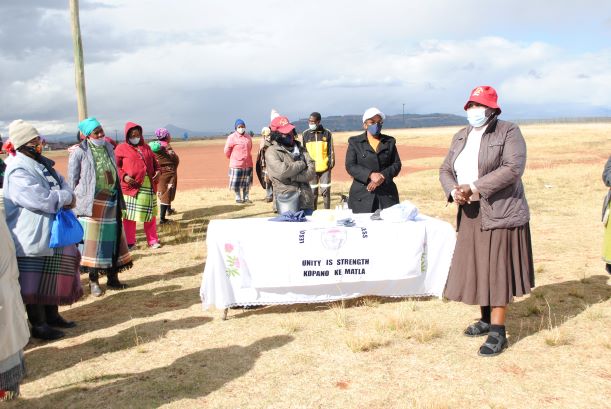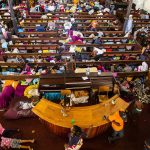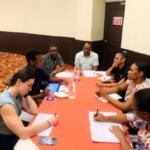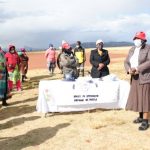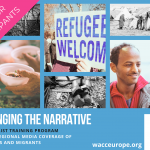The reality of the COVID-19 virus in the Southern Africa region remains very present. Pressing and multidimensional challenges that arose since the outbreak of the pandemic in the first quarter of 2020 continue to be felt by all groups of the population including migrant workers. Migrant domestic workers have been particularly vulnerable to the effects of the pandemic, as many do not have formal contracts or access to social security.
Consequently, the already more severe food insecurity among low-paid workers such as domestic workers worsened during national strict lockdowns for those who had temporarily or permanently lost their employment. In addition, migrant workers often have difficulties accessing government support programs. For example, Human Rights Watch noted in May 2020 that “The South African government’s Covid-19 aid programs, including food parcels, have overlooked refugees and asylum seekers”.[i] Similarly, Botswana media reported that “immigrants were initially excluded from the Botswana government’s food parcels”.[ii]
It is against this background that the International Labour Organization through the Southern Africa Migration Management Project (SAMM) funded by the European Commission launched an income relief activity to benefit migrant domestic workers. This initiative targeting migrant workers was started in Botswana and South Africa during state of emergency and severe lockdown restrictions in the course of 2020. In their calls for help, trade unions and migrant civil society organizations pointed at the serious threat to the survival of groups of migrants, including migrant domestic workers.
Accordingly, and in collaboration with the Botswana Domestic and Allied Workers Union, around four hundred (400) food parcels were distributed to migrant domestic workers in various parts of Botswana. The distribution took place in urban and rural areas in July and August 2020. Foreign nationals working as child minders, cleaners, gardeners and cooks received the relief in the form of food parcels. Many of the beneficiaries were Zimbabwean migrant women working as domestic workers.
In South Africa, more than 900 vulnerable migrant domestic workers living in Gauteng successfully received cash transfer to cover expenses relating to basic needs. These transfers were made available through Izwi Domestic Workers Alliance Project and the Disabled Disabled Migrants Rights Networking Organization. Most recipients used the cash to purchase food for members of their households including school-aged children. Female migrant domestic workers assisted through the ILO income relief grant represent the large majority of the beneficiaries, who included nationals from Lesotho, Malawi, Mozambique, Swaziland, Zambia and Zimbabwe.
More recently, assistance was provided to returning migrant domestic workers in Lesotho. Facemasks, sanitizers and food parcels are being distributed to around 180 migrant domestic workers in several districts of the country.
[i] HRW.2020.South Africa: End Bias in Covid-19 Food Aid. www.hrw.org/news/2020/05/20/south-africa-end-bias-covid-19-food-aid
[ii] VAONEWS. 2020.On the Edge of Starvation, Hundreds of Zimbabweans in Botswana Want to Go Home. www.voanews.com/covid-19-pandemic/edge-starvation-hundreds-zimbabweans-botswana-want-go-home
 Français
Français